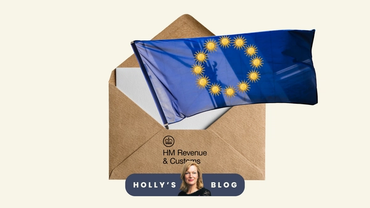Record IHT Bills Hit Middle Earners: 5 Smart Ways to Reduce Your Liability
By Boring Money
28 May, 2025
Inheritance Tax (IHT) used to be a concern largely reserved for the wealthy. It was even considered an ‘optional’ tax, because those with the deepest pockets could supposedly access clever accountants to circumvent it. But not anymore. More and more people are paying IHT than ever before, generating record sums for HMRC and headaches for families across the UK.

Why Inheritance Tax bills are on the rise
This month, an update from HMRC showed IHT receipts of £780 million in April 2025 – the second highest monthly total ever recorded. This is an increase of £97 million over the same month last year and follows the government raising a record £8.2 billion in 2024-25.
This is likely to rise to more than £14 billion by the end of the decade, according to OBR forecasts. Increasing house prices, changes to Inheritance Tax rules, and years of allowance freezes could bring as much as 10% of UK estates
into the IHT net.Currently, only around 5% of estates pay this most-hated tax. A Freedom of Information (FOI) request by investment platform interactive investor (ii) revealed that nearly 153,000 estates could face a new or increased IHT liability by 2030 as a result, including 31,200 additional estates that will become liable for IHT.[1]
The sums involved are significant. According to ii, a 45-year-old earning the national average of £35,000 could face an IHT bill at age 68 of a whopping £194,529. This rises to £218,992 and £267,914 for those with a salary of £50,000 and £80,000 respectively.
The assumptions made are not heroic – just a pension contribution of 8% of salary and a 2% annual increase in property values and wages. It also assumes that the £325,000 nil-rate band
is still available.It's also clear that some of the tried-and-tested IHT mitigation routes may now be under fire. Investors facing an IHT liability have often taken advantage of generous IHT rules on their pensions, private company shares, and AIM shares
to lower their bills. However, rules around pensions will change from 2027, and members of the cabinet have already made it clear that they would like to see private company and AIM shares included for IHT calculations as well.[2]The double whammy of plans to include pensions in IHT calculations, alongside the ongoing freeze in nil-rate bands, means that IHT is increasingly becoming a tax for all, not just the wealthy as it was originally portrayed. The stark reality is that the IHT net is expanding, increasingly ensnaring people with modest assets.
The evolving IHT regime continues to be a major revenue stream for the UK government, and with IHT receipts reaching record highs between April 2024 and March 2025, it looks likely to keep rising even further in the years to come.
Five ways to reduce your IHT bill
A recent interactive investor survey found that more than half (54%) of UK adults plan to adjust their retirement planning in response to the IHT changes on pensions.[3] So what steps can you take to reduce your Inheritance Tax liability before the rule change kicks in?
1) Start with annual gifting
Gifting is the obvious starting point. Individuals can gift up to £3,000 per year to whomever they like, no questions asked, no IHT liability. Over time this can take a significant chunk out of the IHT net.
2) Explore gifts from surplus income
A lesser-known option is to use the ‘gifts out of surplus income’ rule. A recent FOI request revealed this route is only used by 2% of estates[4], but could be used far more widely to pass on money free from IHT.
Gifts out of surplus income must be made as part of someone’s normal expenditure, and they need to be able to demonstrate that it doesn’t diminish their standard of living. Unlike with ‘potentially exempt transfers’ - the other main gifting option (more on this below) - the donor does not need to survive for seven years to escape IHT.
Given the upcoming pension tax changes in 2027, we expect to see a sharp increase in the use of this exemption as more people look for ways to mitigate IHT liabilities. For those who can afford to make gifts from surplus income, this is an incredibly valuable strategy, as the relief applies immediately without needing to wait seven years, which is required for most other gifts above the £3,000 annual exemption.
3) Consider larger transfers (but understand the risks)
Potentially exempt transfers remain the only option for passing on larger sums. This involves transferring ownership of an asset, and if the donor survives seven years after the transfer is complete, it falls out of the IHT net.
However, it's not all that simple; You'll still need to be careful around any tax incurred from the sale of the asset to the recipient. Capital Gains Tax could be triggered on the transfer of an asset if it has gone up in value since it was originally acquired and, in the case of larger assets such as property, this could be significant.
There are also caveats around ‘gifts with reservation of benefit’ - i.e. you cannot give away your home and then continue to live in it, unless you pay a market rent to do so.
ii's Jobson warns that means people need to be careful around their gifting strategy and also remember to prioritise their own income requirements in later life. You don't want to give away something valuable, like a rental property, if it could provide you with an income while you're retired!
Whether this means gifting more to loved ones or exploring other strategies, it’s crucial not to overlook your own financial needs in later life – you don’t want to find yourself financially stretched in retirement.
4) Invest in IHT-efficient assets
For the time being, putting money into private asset or AIM portfolios is still a reasonable solution to mitigate IHT. While the rules have tightened recently, many of these investments are still taxed at 20% instead of the full 40%, which can make a big difference for larger estates.
These portfolios can carry more risk
than more conventional investments, so they’re usually better suited to more experienced investors with larger estates, who are comfortable with a bit more uncertainty.Several wealth managers offer these specialist portfolios, including Evelyn Partners, Hawksmoor, Charles Stanley, Octopus and Investec.
However, It’s always a good idea to speak to a financial adviser before going down this route. They can help you understand the risks, check eligibility, and ensure the strategy fits your overall estate plan.
5) Maximise spousal allowances
Finally, the real no-brainer for IHT is to make sure married couples/civil partners are using all the tax allowances at their disposal.
Anything left to a spouse is free from IHT. That includes your house, pension, savings, and even things like cars, jewellery or artwork. If you pass away and leave everything to your spouse (and therefore don’t use any of your allowance), it will carry over and be available for them to use when they die - on top of their own allowance.
Final thoughts
Perhaps the most important thing to do when it comes to Inheritance Tax is not to ignore it. Talking about death is never easy, but it's a whole lot better to do so when it's still a long way in the future and there are more options on the table. Many of us will need to face an IHT bill at some point, so the sooner you take steps to mitigate it, the smaller it will be.
---
[1] interactive investor, February 2025






